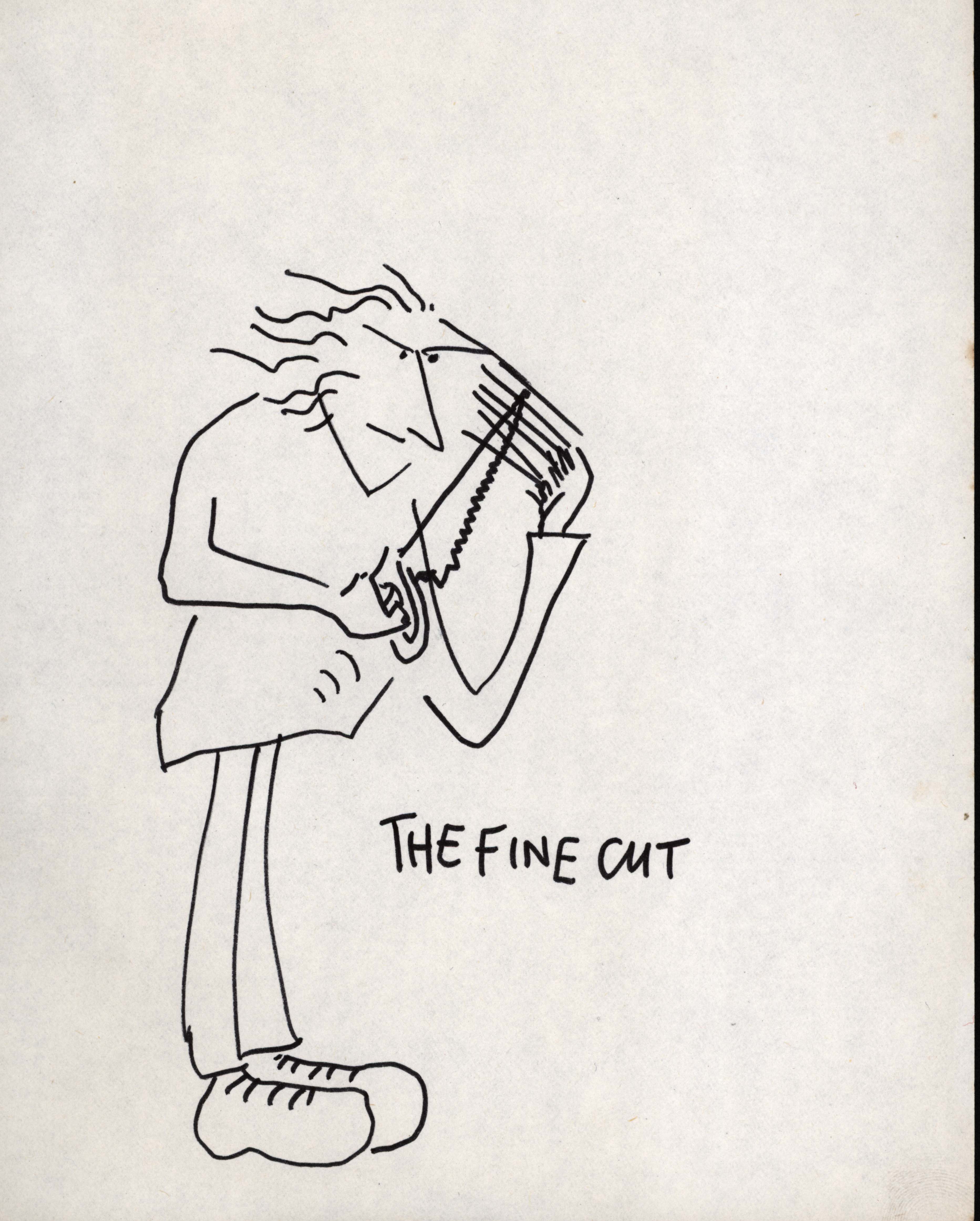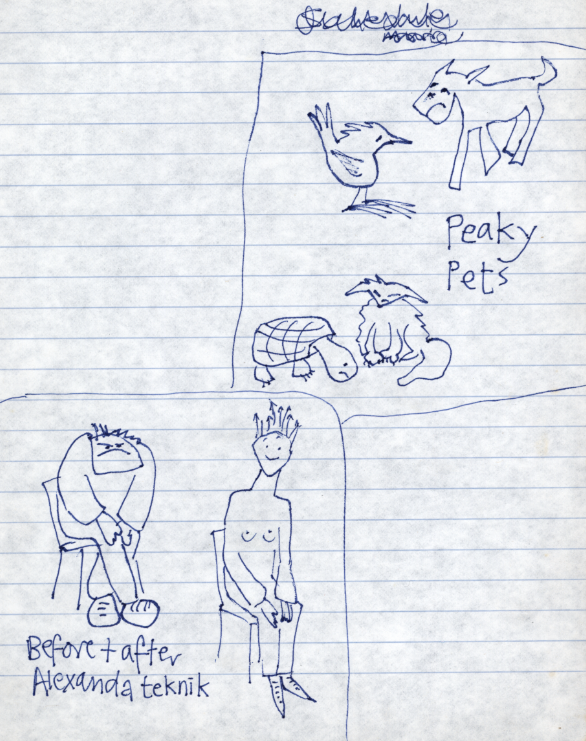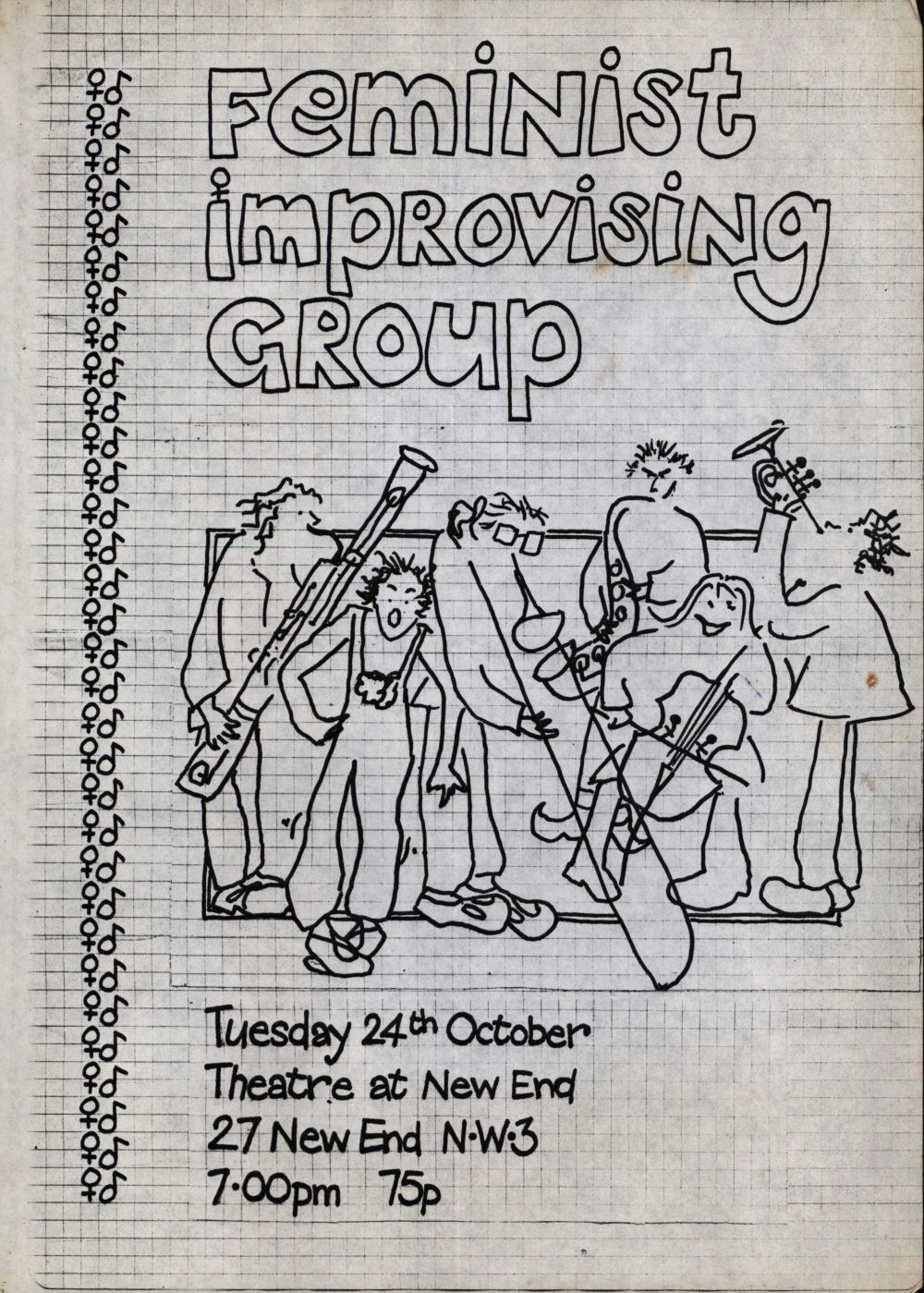Following our blog in February (for LGBT+ History Month) on ceramicist Ian Godfrey, this two-part blog series seeks to showcase a further selection of archives we hold that celebrate the stories and histories of creative LGBTQ+ communities and individuals.
LGBTQ+ communities have long been an integral part of creative conversations and practice, and yet have often been omitted from mainstream histories. These stories should be visible. We are able, through our collections, to highlight a small section of this history as a testament to the surviving stories of LGBTQ+ people.
The Lindsay Cooper Archive
In the first of this series, we're highlighting the archive of lesbian musician and political activist Lindsay Cooper.
Follow us
Contact us

Cooper's creative contributions are wide-ranging. She is best known for her work with the avant-rock band Henry Cow. Primarily known as a bassoon and oboe player, she worked with a number of creatives, namely musician Chris Cutler and director/screenwriter Sally Potter, and was a founding member of the Feminist Improvising Group.
The archive of Lindsay Cooper (1951–2013) is a fascinating insight into the full life of a creative practitioner. It contains not only the drafts and works of her music and other creative outputs, but also records her early life, including her school work. The archive seems to be a comprehensive personal and professional archive, and therefore many insights can be gleaned from this collection.
Although primarily known as a musician, the collection of drawings and prints made and kept by Cooper reveals her propensity to experiment, and not being bound to one medium of expression.
Another highlight of this archive is Cooper's selection of personal diaries. It records the mundanity of life, as well as her thoughts and relationships with women. This directly contrasts the records of her professional work, which are a mixture of musical scores and writing. Thus, it provides a parallel textual alternative to her professional and creative outputs.

One aspect of Cooper's archive which is curious, is the interest in her own family history (and records that relate to it), resulting in a wonderful discrete collection of personal and family photographs. Here, we see the connections between the people in her life, which again shows her life within a personal context as well as a professional one.
The Lindsay Cooper Archive catalogue is available online, and the archive can be accessed by appointment in the Archives and Special Collections Centre (please note that the ASCC is currently closed until further notice due to the worldwide COVID-19 pandemic). Cornell University Library also holds a digital archive of Cooper's works, which can be accessed online.
The second of this blog series, to be published next week, will feature two further collections from our archive. Making connections between seemingly unrelated archives, and framing this within the LGBTQ+ context, shows how archives can be constantly reinterpreted, reimagined and potentially be used for research in underrepresented areas.
Keep in touch via our Twitter and Instagram, or email us directly: archive-enquiries@arts.ac.uk.



